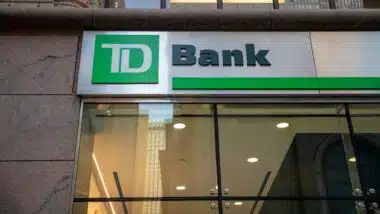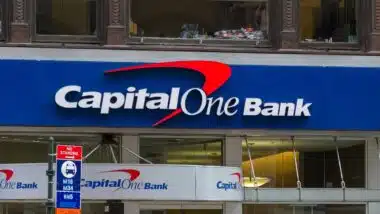
Overdraft fees plague customers at a range of financial institutions and may seem like an inescapable part of banking. However, a study suggests that these fees may not be the same across the board — research done by NerdWallet suggests that that banks charge more in overdraft fees than credit unions.
The Chattanooga Times Free Press reports on the data from NerdWallet, saying that the average overdraft fee at a bank is around $35, whereas the average overdraft fee charged by a credit union is only $26. That’s almost a $10 difference, which can really add up.
According to SmartAsset, some types of financial institutions don’t charge overdraft fees at all, because they don’t have overdraft programs. These kinds of financial institutions may include online banks.
Overdraft programs allow customers to have a purchase be approved even if they do not have enough money to cover it. These programs are often advertised as a service that gives customers flexibility with their money. However, they usually come with fees — customers can be charged an overdraft fee each time they overdraft their account, and these fees can add up quickly.
MoneyRates notes that some banks do cap the number of overdraft fees that they charge in one day, which can help reduce the financial hit that an overdraft can take. Some customers may want to seek out banks like this specifically to minimize the overdraft fees they can incur, says MoneyRates.
Though not having the option to enroll in an overdraft protection program may limit a customer’s flexibility, this can also prevent a customer from unknowingly making purchases that exceed the amount in their account, and can prevent them from incurring an overdraft fee.
Some banks may be charging too much in overdraft fees, and customers are standing up to them by filing lawsuits. Bank of the Ozarks recently reached a $2.75 million settlement with customers who claimed that the bank was charging too many overdraft fees.
According to the Bank of the Ozarks class action lawsuit, the bank was intentionally processing charges in the wrong order to maximize the number of overdrafts for which it could charge.
Unfortunately, financial institutions that do charge overdraft fees may charge more than one kind of overdraft fee. NerdWallet says that according to the study, 58 percent of banks that were surveyed charge not only an overdraft fee for each item that overdrafts the account, but also charge continuous overdraft fees on accounts that remain in the negative for several days in a row.
The study says that these continuous overdraft fees, also known as extended overdraft fees, may range from between $6 and $28.50. Unfortunately, some of these continuous overdraft fees may be charged on a daily basis.
This means that a customer who errantly overdrafts their account and makes just a couple of purchases that exceed the amount of money in their account could end up paying hundreds of dollars in overdraft fees and extended overdraft fees.
 Are There Consequences for Overdrafting Your Account Too Often?
Are There Consequences for Overdrafting Your Account Too Often?
The problem doesn’t stop there. Overdrafting an account can cost you more than overdraft fees. If a customer is unable to bring their account into the positive quickly enough, or if the customer has a tendency to overdraft repeatedly, the financial institution could close the customer’s account.
The bank could then report the customer’s overdraft history to a credit reporting agency. This effect on credit could make it hard for the customer to open an account with a different bank if their account does get closed.
UK Banks Change Overdraft Policies
However, changes in overdraft policies may be coming in the future. Under new regulations set to take hold in the UK in April 2020, individual overdraft fees will be replaced by a monthly interest fee on overdraft transactions.
Under these new regulations, overdraft fees for individual transactions will be abolished. Instead, a monthly fee based on an interest percentage will be applied to customers’ bank accounts each month. This interest rate averages to be around 35 percent, although some banks may charge some consumers as much as 50 percent. Consumers who are already financially vulnerable may be hit especially hard by this change in policy.
The changes to UK overdraft fees are coming after the Financial Conduct Authority called the current process dysfunctional, and ordered UK banks to change their overdraft fee practices and eliminate excessive or confusing fees. However, while the new regulations may lower prices for some customers, some consumers may be worse off than they were before. The new average interest rate of 40 percent is virtually identical to the previous amounts customers were being charged in individual fees. In response to these high rates, the FCA has ordered UK banks to respond and explain the reasoning behind their pricing. Additionally, the FCA has stated that it expects the banks to come up with plans for how to deal with customers who will be negatively financially affected by the recent changes.
Are Overdraft Fees Applicable During the COVID-19 Crisis?
Due to the coronavirus crisis, even some banks in the U.S. have changed their overdraft policies. Federal regulators have urged banks to consider temporarily eliminating these fees. In New York Governor Cuomo recently announced that state chartered banks would be waiving overdraft fees for several months in order to lessen the financial burdens already being suffered by many New Yorkers. Additionally, Bank of America has begun offering some customers overdraft fee waivers.
However, many banks serving communities that are already disproportionately affected by overdraft fees have not changed their policies and are expected to continue collecting these fees.
In order to combat banks potentially taking owed overdraft fees out of consumers’ coronavirus government stimulus checks, senators Cory Booker and Sherrod Brown have introduced a bill that would prohibit financial institutions from collecting or charging these fees until the coronavirus crisis is over. Booker and Brown have introduced several bills regarding the elimination or reduction of overdraft fees over the past several years. The senators also sent letters to financial institutions including Citi, JPMorgan Chase, U.S. Bank, and Wells Fargo, urging them to voluntarily suspend these fees for the duration of the crisis. Although an overdraft fee is small, these fees may quickly add up for consumers who are already unexpectedly struggling financially.
Brown told CNBC Make It: “We must give workers and hardworking Americans the tools they need to rebuild and recover after this crisis. That includes making sure they can keep their money in their own pockets and out of the hands of banks to cover fees and small overdraft amounts.”
If you were charged overdraft fees or NSF fees by your bank or credit union that you believe are improper for any reason, the attorneys who work with Top Class Actions are ready to investigate these fees on your behalf.
Learn more by filling out the form on this page.
This article is not legal advice. It is presented
for informational purposes only.
ATTORNEY ADVERTISING
Top Class Actions is a Proud Member of the American Bar Association
LEGAL INFORMATION IS NOT LEGAL ADVICE
Top Class Actions Legal Statement
©2008 – 2026 Top Class Actions® LLC
Various Trademarks held by their respective owners
This website is not intended for viewing or usage by European Union citizens.
Get Help – It’s Free
Join a Free Bank Overdraft Fee Class Action Lawsuit Investigation
If your bank and credit union has engaged in deceptive overdraft fee practices, you may have a legal claim. Fill out the form on this page now to find out if you qualify!
An attorney will contact you if you qualify to discuss the details of your potential case.
PLEASE NOTE: If you want to participate in this investigation, it is imperative that you reply to the law firm if they call or email you. Failing to do so may result in you not getting signed up as a client or getting you dropped as a client.
In order to properly investigate overdraft fee claims, you may be required to disclose bank statements to overdraft fee attorneys. Please note that any such information will be kept private and confidential.












